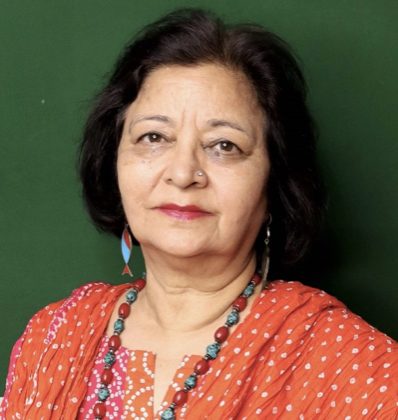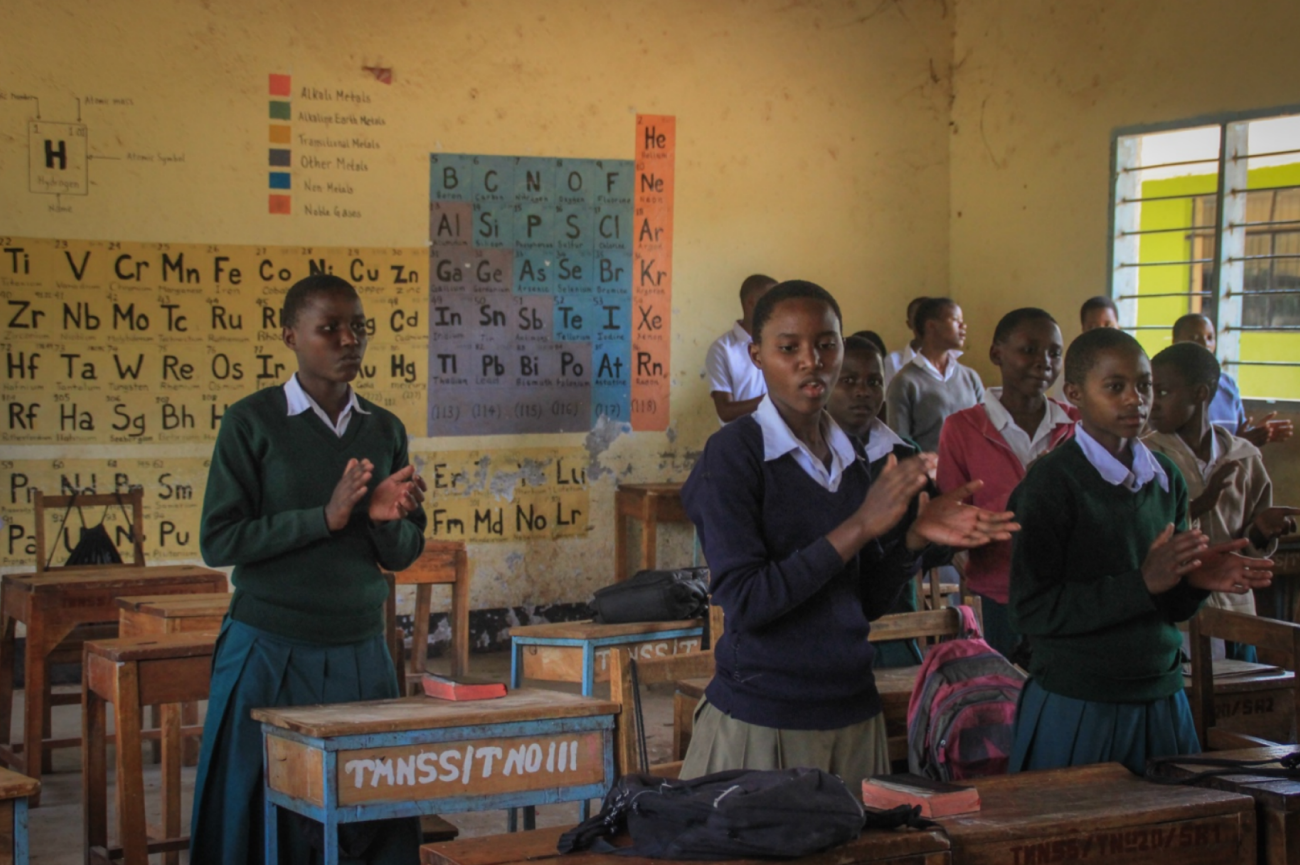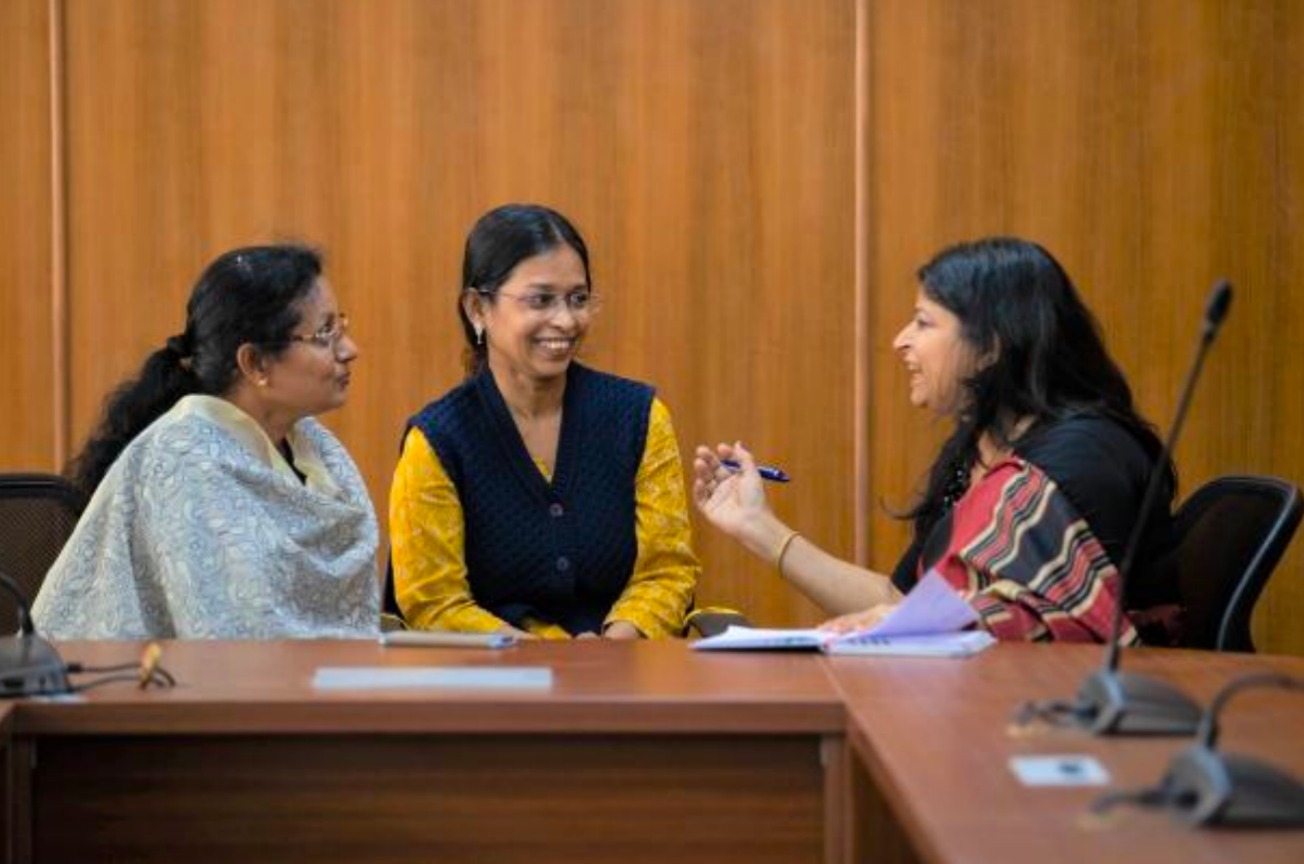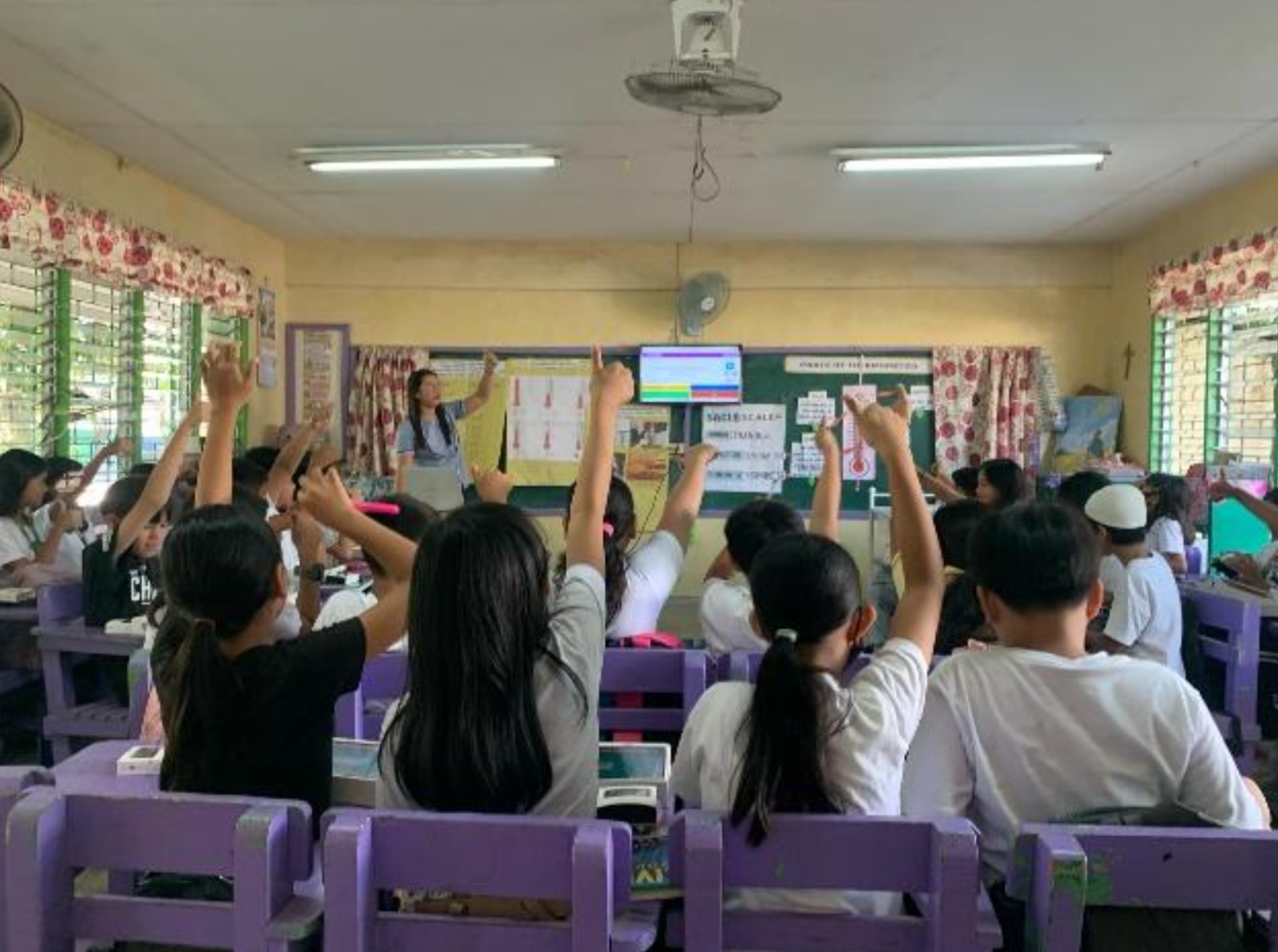Commissioner Baela Raza Jamil leads an Idara-e-Taleem-o-Aagahi (ITA) training of trainers session in Pakistan (photo: ITA)
by Baela Raza Jamil
This blog is part of a DeliverEd Initiative series by policymakers and leaders from around the world who share their challenges in delivering reforms and reflect on the various approaches used to solve these challenges in their countries. The opinions contained in these blogs are those of the authors and do not reflect an official position of the Education Commission or its research partners.
DeliverEd aims to build the evidence base for how governments in low- and middle-income countries can achieve their policy priorities in education using delivery approaches.
As a technical adviser, researcher, innovator, and activist, I have lived, practiced, and closely observed the adoption of delivery approaches at scale. In Pakistan, the past two decades have been packed with emergencies and political shifts that have pushed politicians and bureaucrats to work together to address education challenges. These challenges have been intensified by an ongoing “education emergency” that has long preceded COVID-19.
Looking back: Snapshots of education reform in Pakistan
From 2000 to 2004, I served as a technical adviser to the Federal Ministry of Education in Pakistan. I worked intensively within and across the Education Ministry and the Ministries of Planning and Finance in the design and delivery of consensus-based national reforms. This was my first brush with ‘deliverology,’ when the president, prime minister, and provincial chief ministers pushed for an education turnaround through targets and evidence-based implementation routines. While at the Ministry of Education, I was part of the delegation to the World Education Forum Dakar in 2000, where our ministers were inspired by possibilities of “debt swaps for education” and the newly announced Fast Track Initiative, later re-christened as the Global Partnership for Education (GPE). Upon our return, we immediately wooed the Federal Finance Minister to enable Pakistan to successfully undertake the largest debt swap with the Canadian government (420 million CAD). We also succeeded in making the funds flow directly to the provinces and districts through the innovative and simple financing tool, Letters of Agreement, which improved upon the previous centralized mechanisms of releasing funds that had a lag time of up to 36 months. To build systemic consensus on service delivery and reforms, a matching governance structure was crafted for the federation called the Inter Provincial Education Ministerial Forum (IPEM-F) in 2002. Under the IPEM-F, ministers and secretaries visited reform sites across the provinces to evaluate efficacy, innovations, and policies and undertake iterative policy changes. The IPEM-F (now called the IPEM-Conference) is an effective decision-making body to this day, with renewed zeal during COVID-19.
In 2010, education finally became a fundamental right in Pakistan’s constitution, promising 12 years of education to every child 5-16 years of age. Education also became officially decentralized, with policy, planning, financing, and implementation delegated to the provinces. At this time, Pakistan convened a task force to counter the ongoing education emergency, co-chaired by the Prime Minister’s Special Assistant Shahnaz Wazir Ali and Sir Michael Barber, the architect behind the UK’s successful experience with deliverology. In parallel, the Government of Punjab, Pakistan’s most populous province, spearheaded ambitious reforms through the Punjab Schools Reform Roadmap (PSRR). This was a bold, whole system revamping, monitored at multiple levels with well-defined indicators and a data-driven architecture backed by politicians and bureaucrats alike. The metrics moved slowly but surely, tracked by government, third parties, and citizen-led assessments on learning like ASER Pakistan. Sir Michael Barber remained an active pro bono actor for PSRR on behalf of the UK Government, and in 2013 shared the “Good News from Pakistan” that, 1. It’s working, and 2. This is only the beginning.
Where we are today
Pakistan is the world’s fifth most populous country, where vulnerable groups suffer inequality profoundly and the crisis of learning is morphing into a crisis of equity with inter-generational consequences. During the COVID-19 pandemic, we at Idara-e-Taleem-o-Aagahi collected the Annual Status of Education Report (ASER)-COVID round in 16 rural districts. The assessment covered 25,448 children (3-16 years) and 9,392 households. Our findings indicate the children in grade 3 are most affected, slipping 4% in reading a story in Urdu/Sindhi/Pashto (from 19% of learners in 2019 to 15% in 2021). The number of learners able to do basic math (two-digit division) dropped by 7%, from 17% in 2019 to only 10% in 2021. This foundational learning crisis for 3rd graders could be a “lost generation” if we don’t act fast. As Lant Pritchett aptly said, “we are in a big stuck!” The resources for education need predictability and are often compromised by the five-year political economy cycles. Politicians and bureaucrats remain fearful of the Right to Education laws which they have still not implemented.
Looking ahead: The DeliverEd Initiative and delivering education in Pakistan
With the second-largest population of out-of-school girls globally and ranking 153 out of 156 countries in the Global Gender Gap Report (GGGR), Pakistan needs to deliver on education now. I am honored to be a Commissioner to the Education Commission, along with many global heroes. In this capacity, I also serve on the High-level Advisory Group for the DeliverEd Initiative, which is currently conducting research in the provinces of Punjab and Sindh to help fill gaps in our knowledge of what works in education reform. Understanding “what makes delivering education tick” in Pakistan during a global pandemic requires out-of-the-box thinking and collaboration. We need leapfrogging pathways that will lead to bold results, and we need to go beyond sectoral myopia.
DeliverEd, and future delivery reforms in Pakistan, must pool energy and resources, ensuring that the poorest and most fragile groups can access education and learning now. We need a convergence of leadership, knowledge, policies, target setting, implementation with measurable learning outcomes, and pooled resources to avert a nationwide equity crisis. Perhaps it is this type of synergistic collaboration that can lead to education that delivers.

Baela Raza Jamil, CEO of Idara-e-Taleem-o-Aagahi (ITA), Center for Education and Consciousness, is a public policy specialist and an activist at heart. She is the former Technical Adviser to Pakistan’s Federal Ministry of Education. She leads the citizens’ accountability learning initiative, the Annual Status of Education Report (ASER) Pakistan and is the founder of the Children’s & Teacher’s Literature Festival, both of which are nationwide social movements. Baela is a member of multiple national and international education forums. She is a Commissioner of the International Commission on Financing Global Education Opportunity (Education Commission) chaired by Gordon Brown and serves on several global advisory platforms.



